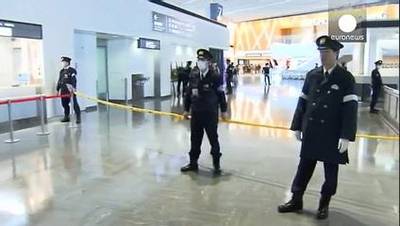By Pramod Raj Sedhain.

Terrorist group, Islamic State beheaded Japanese freelance journalist Kenji Goto and another Japanese national Haruna Yukawa that drew international condemnation. Japan applied all available options but could not save these two innocent people from the hands of barbaric terrorists. Japan now has the right of military retribution against those responsible for the terrorist acts. These enemies of humans, the Islamic extremist group will only listen to the voice of force. To be more precise, military response would be the retaliation.
Japanese military interference will be the best option to drive out the Islamist terrorists for the world’s safety. Brutal barbaric group poses great threat to international peace and security. For instance, Egypt immediately retaliated following the beheading 21 of its citizens by the Islamic State terrorist’s branch in Libya. Egypt’s air force carried out aerial bombing in Libyan city of Surt on Islamic State targets. Jordan has already carried out bombing raids against the Islamic State in Syria in retaliation for burning to death of a captured Jordanian pilot. Following the path of Egypt and Jordan, Japan too should not delay in launching air strikes against the terrorists.
Prime Minister Shinzo Abe is keen on changing the American written 1947 (after World War II) constitution especially about amending defensive military to forbid the use of armed force to settle disputes (Constitution Article 9) and allow it for overseas action is an extensive political debate in Japan. Success of such revision will not only pave the way towards projecting Japan’s military power to the world but will also demonstrate a bigger role in global affairs. Japanese people support the initiative for the drastic change to allow the use of military against terrorism.
After killing two innocent civilians by terrorist group, Japan has seen unprecedented levels of growing concern about terrorism threat. Japanese military engagement overseas is the most sensitive political issue inside Japan but policy makers are under pressure for preventing citizen life in emergency situations and growing terrorist pose challenges. Japan has been playing an active role in peacekeeping, and is also a provider of huge humanitarian relief, benefiter of financial aid in developing nations and engager of economic security worldwide. It, however, needs to have active military engagements for global security. Proactive pacifism will succeed without adoption of all necessary measures either politically, diplomatically, economically and militarily.
Japan’s commitment of $200 million as part of humanitarian aid for anti-Islamic State effort is a good gesture. But it is still not a significant support for military assistance. Japan is one of the prominent coalition nations among the 62 countries, according to U.S. State Department (Sep 2014 published list). Japan needs to mobilize troops to fight terrorism under the umbrella of US-led coalition. Overseas operation needs more intelligence-gathering capabilities and experience rescue operation and coalition is ready to help for anti Islamic State battle.
Japan has been stepping up its humanitarian support to anti-IS coalition but it still needs direct military involvement against Islamic State. U.S.-led anti-terrorist coalition has continued aerial attacks in Iraq and Syria but Japan has not yet joined it militarily. Japan needs to take revenge by providing air support and direct military equipment to anti-IS coalition. Emergence of Islamic State is a threat of whole human civilization and massive military response is needed to eliminate this terrorist outfit. It is time for Japan to begin measures to fight against terrorism such as launching airstrikes against Islamic State target in Iraq and Syria.
Japan is a country with advanced societies and still not a potential target point for the terrorists but Israeli media reported that nine Japanese citizens joined the Islamic State. Japan has 0.1 percent Muslim population and still prevents radicalization but future threat should not be underestimated. Destruction of terrorist safe havens is the responsibility for all nations having military capability. Beyond the borders operation is not an easy task for Japan but capable air force pilots can easily airstrike or hit terrorist targets as what coalition nations are doing. Eliminating the global threat of terrorism is the responsibility of capable Japan. Japan’s defense strategy does not need to involve in the worldwide crises but should urgently authorize to use force to join anti-terrorist campaign to eliminate potential terrorist threats.


